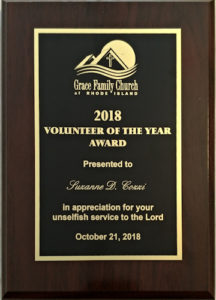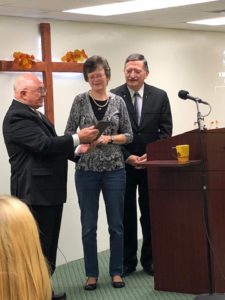Dear Brothers and Sisters:
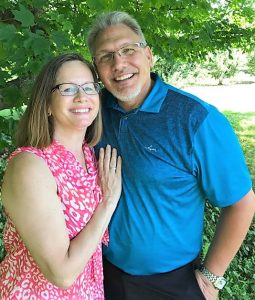
In the summer of 2012, while pursuing my Doctor of Ministry from Drew University, I was presented with the unexpected opportunity of taking an elective course called Celtic Spirituality. It required that I travel with the professor and six other students by plane to Manchester, England, then by train into Wales, then by van to the village of Aberdaron, and finally by ferry boat to Bardsey Island. Remote and rather barren (see the picture below), Bardsey has only four permanent residents. Nevertheless, it holds a special place in the cultural life of Wales. Due to the large number of Christians buried there, it is known as “the island of 20,000 saints.” Legend has it that King Arthur is one of those buried there. As a result, the island attracts large numbers of artists, writers, musicians and pilgrims (my class included).

In AD 516, an Irish priest named Cadfan sailed to Bardsey with 25 monks and began a monastery that operated through 1537. It was the mission of my class to recreate monastic life some 475 years after the monastery closed. In order to be formed into a monastic community, each of my classmates was assigned one of several roles: abbot, deacon, cellarer, cantor, acolyte, or the one I was assigned: lector. The job of the lector is to prepare the readings assigned for the mass (liturgical church service). The lector then either reads those long passages or assigns others to read them. I had no idea of the large amount of scripture that is read in these services.
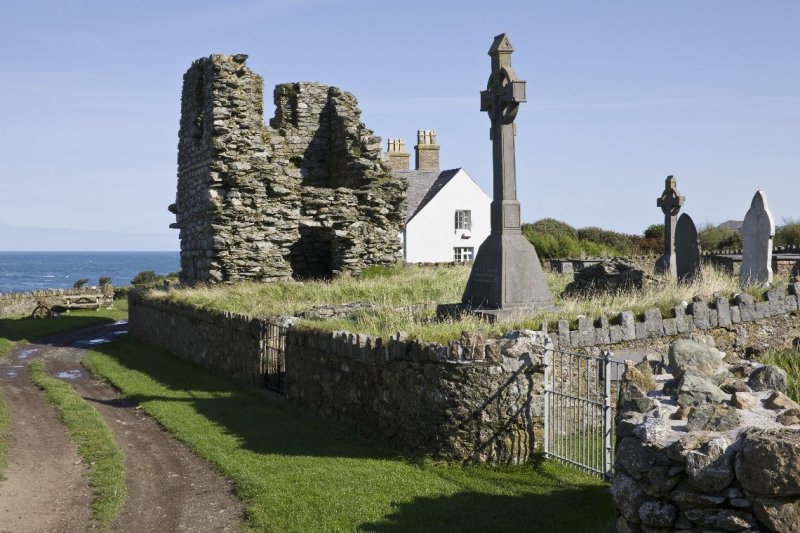
Initially, my reason for reading the passages had to do with fulfilling a degree requirement. But as I read, I was surprised by the profound, personal impact it had as I experienced the Word of God washing over me. As I went back and forth between Old and New Testament readings, my appreciation for Holy Scripture was renewed and deepened.
The course professor, an Episcopal priest, gave me some special attention (perhaps his Tennessee roots paired well with my North Carolina roots!). He teased me incessantly, noting that though we Evangelicals say we are Scripture-based, we read far less Scripture in our worship services than do churches that follow the historically-orthodox worship liturgy. He made a strong case for making Scripture reading a primary part of all worship services.
Being immersed for a week in Celtic spirituality had a significant impact on me. I was particularly moved by sharing in deep, rich community with fellow students. Together, we prepared meals, engaged in morning and evening prayer, daily mass, and other class exercises. But the takeaway I want to share with you is the profound power of Scripture reading in worship services. If your congregation does not already read significant portions of Scripture in each service, I encourage you to do so.
For two examples of how God is heard through the reading of Scripture, read aloud Ephesians 5:21-33. Do you hear God’s instruction concerning marriage spilling over into the mystery of the relationship of Jesus to his body, the church? As we listen, our minds become filled with awe and anticipation. The metaphor of being cleansed by the washing water of God’s Word infers how Scripture is every bit as inspiring and transforming as it is instructive. Now read aloud Psalm 119:9-16. What do you hear? What do you experience?
I encourage all our congregations to follow the Revised Common Lectionary (RCL) in their worship services. Each week the RCL has assigned Scripture readings (called “lessons”)—one from the Old Testament, another from the Psalms, one from the New Testament Epistles, and another from the Gospels. Typically, the sermon expounds on one or more of these passages. You’ll find manuscripts for RCL-synced sermons written by GCI pastors and elders in each issue of GCI Equipper (click here for the sermons published to date). Along with each sermon we also provide a Speaking of Life video and discussion questions synced with the readings and sermon. I encourage you to take advantage of these resources as you proclaim and celebrate the Word of God.
Reading the Word of God with you,
Greg Williams, GCI President

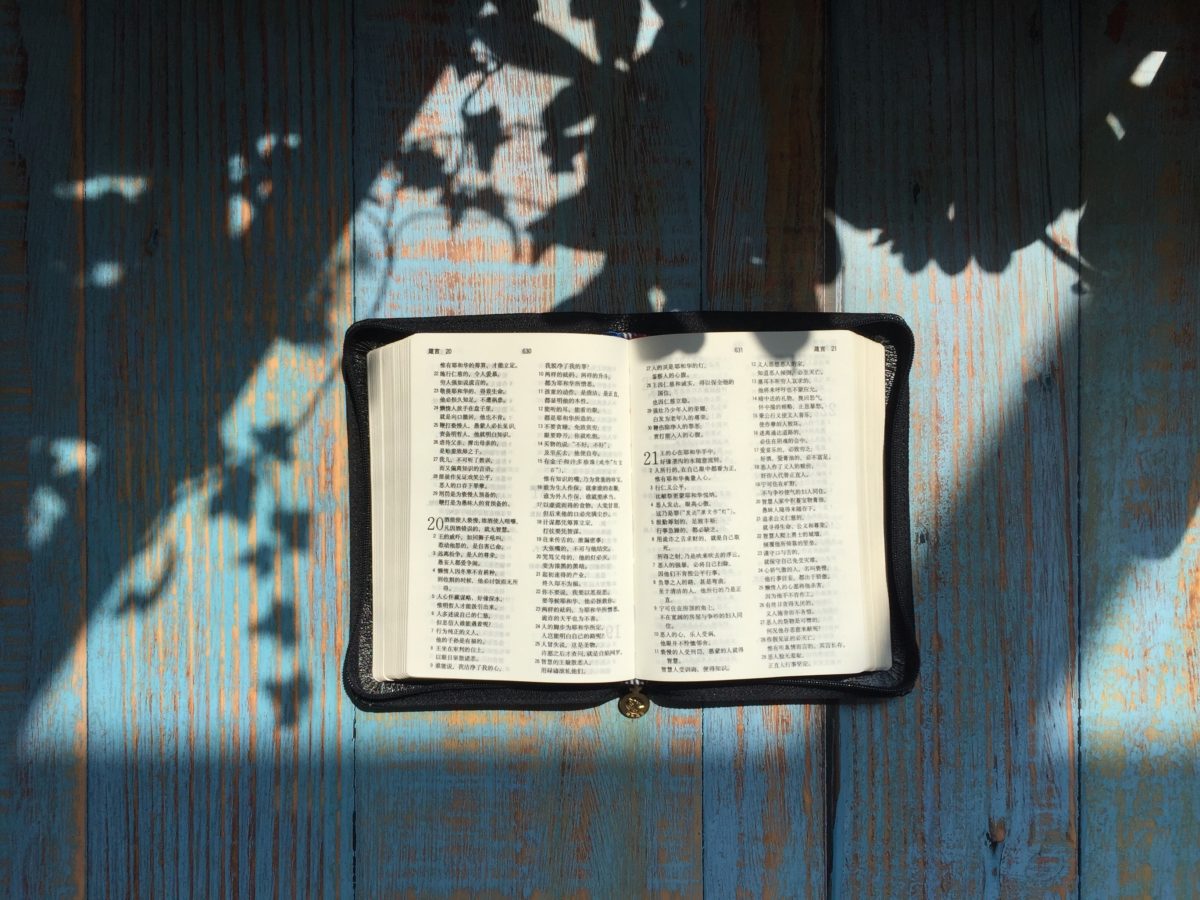



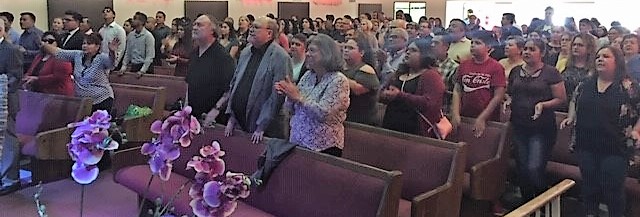
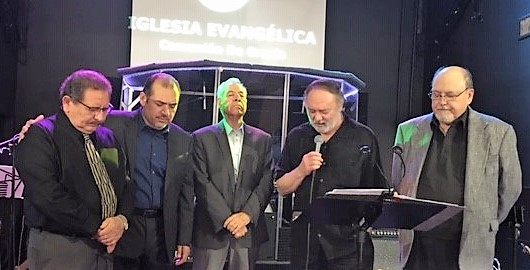
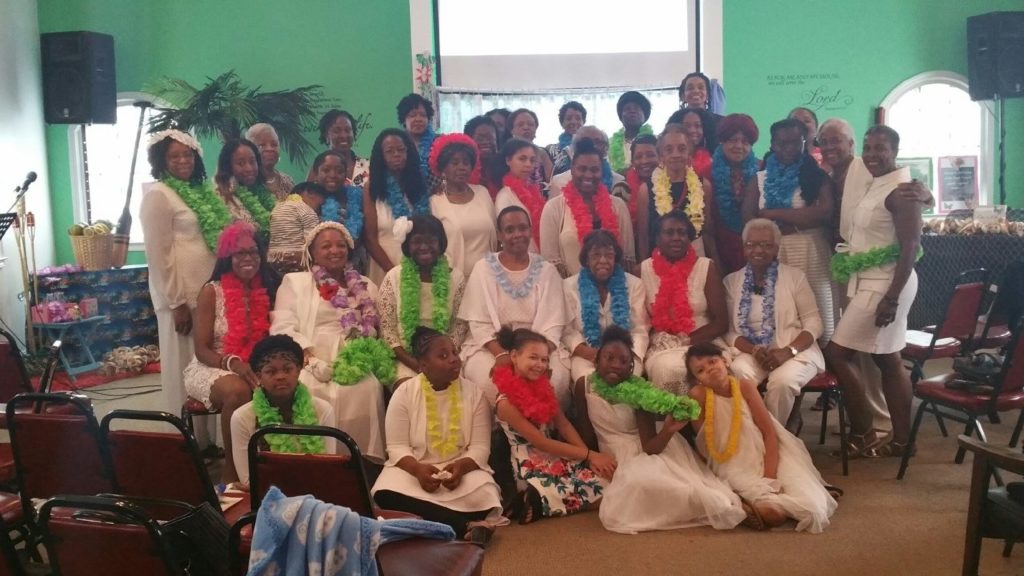
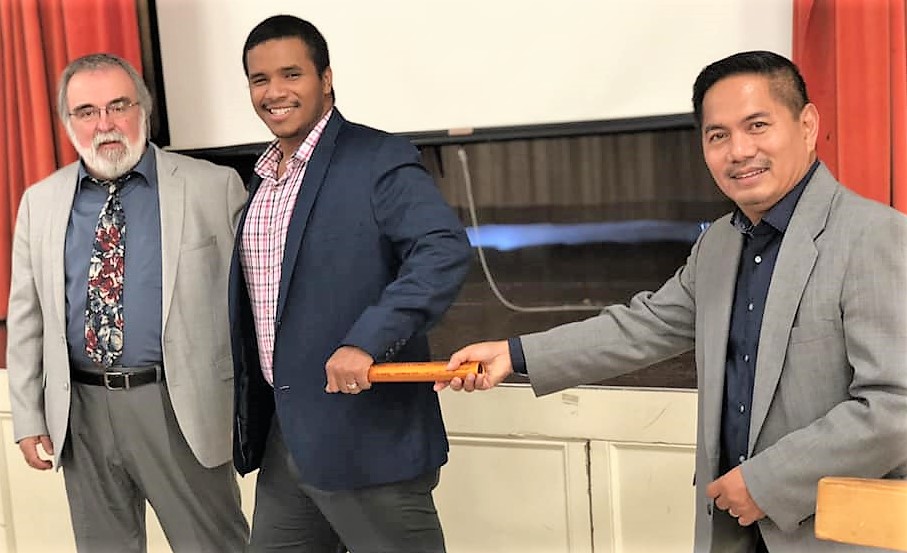
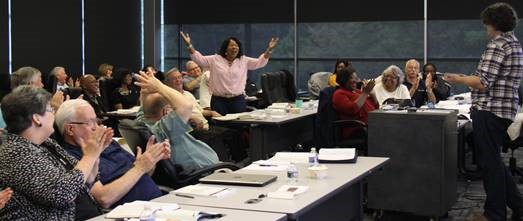
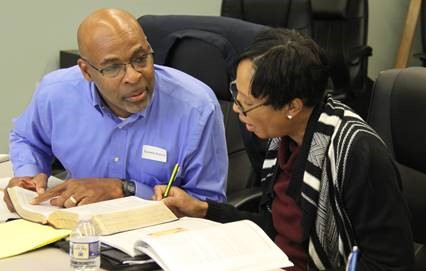 In the Christian Leadership course (held concurrently), we explored the theological foundations of leadership through Jesus, and addressed the practical implications and applications of this for leading. As GCI President Greg Williams often says, pastor-led, team-based leadership is the model for ministry and pastoral leadership that we follow in GCI. The course ideally equips participants for living out this model, yielding more effective leading for ministry and mission, while developing healthier churches.
In the Christian Leadership course (held concurrently), we explored the theological foundations of leadership through Jesus, and addressed the practical implications and applications of this for leading. As GCI President Greg Williams often says, pastor-led, team-based leadership is the model for ministry and pastoral leadership that we follow in GCI. The course ideally equips participants for living out this model, yielding more effective leading for ministry and mission, while developing healthier churches.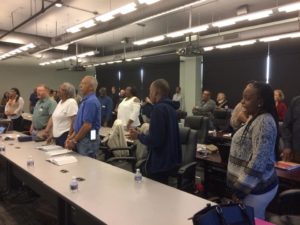 Although the two classes met separately, each day started with combined worship—knowing that both our learning and lives are offered in worship to the Triune God.
Although the two classes met separately, each day started with combined worship—knowing that both our learning and lives are offered in worship to the Triune God.
